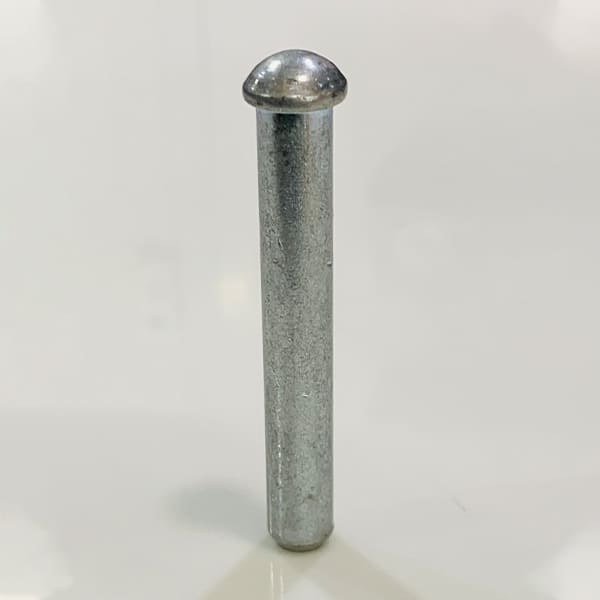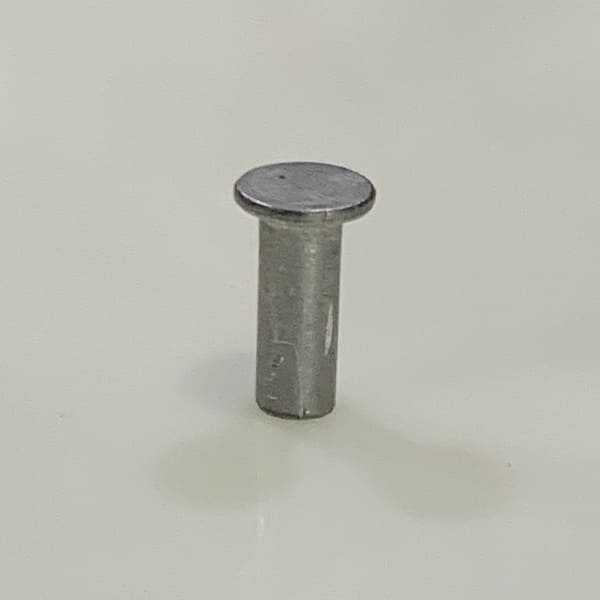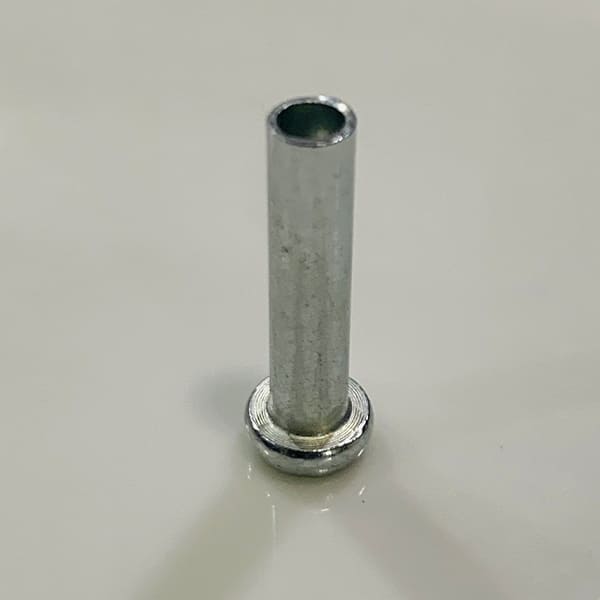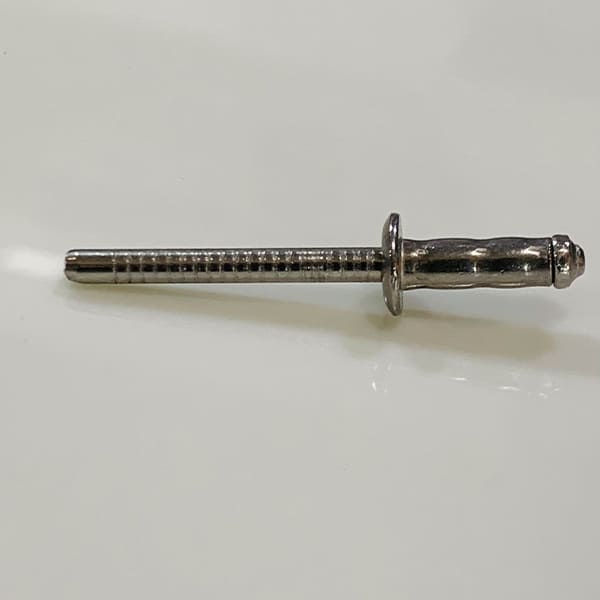
Rivets are mechanical fasteners used to permanently join two or more materials together. They consist of a cylindrical shaft with a head on one end. The rivet is inserted into pre-drilled holes in the materials to be joined, and then the tail end of the rivet is deformed (usually by hammering or using a riveting tool) to form a second head, securing the materials in place. There are several types of rivets, including solid rivets, blind rivets, drive rivets, and tubular rivets, each used for specific applications.
Rivets are commonly made from materials such as steel, aluminum, and copper, chosen based on the strength required and the material of the parts being joined. They are used in various industries like construction, aerospace, automotive, and shipbuilding, offering advantages such as high strength, resistance to vibration, and the ability to join materials that are difficult to weld or solder.


